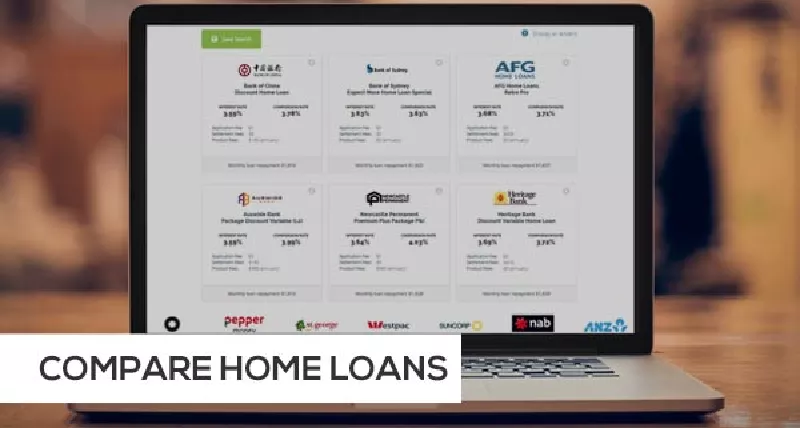Questions to Ask a Mortgage Broker: Comprehensive Checklist
Finding a home loan that suits your specific needs can be a sizable challenge without the support of a professional. Fortunately, mortgage brokers are experts in providing advice and answering any questions you may have about home loans or acquiring your first home.
Mortgage brokers work as third-party operatives, connecting prospective home buyers with lenders offering the required home loan features. Their independence means that your personal circumstances are always considered when determining your borrowing capacity and the best lender option.
It is not uncommon to have questions to ask your mortgage broker when approaching them about a home loan. We have provided this comprehensive checklist to help you determine what questions to ask and what answers you require most from your broker.
Preparing for your broker meeting
Preparing before your initial meeting with your mortgage broker is useful. Namely, you should clarify your financial situation and what you seek in a home.
This is best done by asking yourself questions such as:
Are there any forms or applications I should fill out in advance?
It is vital to always ask your mortgage broker whether there are any necessary documents to fill out before the initial meeting. Preparing for your consultation ensures it goes smoothly and that the home loan application process is not delayed.
There are no set forms that all brokers require before the consultation process. Rather, most brokers will have their own instructions for their clients, some of which may not include any documents.
Aside from asking your mortgage broker directly whether any forms of applications need to be filled out in advance, you can also check their website. Their website will typically contain downloadable documents that can be filled out before the initial meeting, speeding up the process significantly.
What documents should I bring to our first meeting?
While you may not always need to fill out forms before meeting a mortgage broker, any application to a home loan requires certain documents for proof of identity and income. This includes meeting mortgage brokers, who will provide the details on your behalf to different lenders when applying for home loans.
Commonly, you need to bring the following documents to the first meeting:
Proof of identity: To verify your identity, you must bring at least two forms of photographic evidence, and often a supporting non-photographic one. Accepted proof of identity evidence includes a driver's licence, passport, Medicare card, birth certificate, or proof of age card.
Evidence of income: This can be recent pay slips, tax returns, or ATO income statements.
Bank statements: To determine your financial position, you may need to bring bank statements for all open accounts, including savings, personal loans, credit cards, transactions, and offset accounts.
Should I prepare a detailed list of my financial assets and liabilities for our discussion?
Before meeting your broker, you may need to prepare a detailed list of your financial assets and liabilities. This will give them a clear idea of your financial circumstances. Otherwise, you may overextend or undershoot your borrowing capabilities and end up with a loan that does not support your needs or finances.
Your list should include each asset/liability and the amount of money it signifies. This way, you can weigh the costs against each other and your existing bank funds.
For assets, common examples include:
Cars
Superannuation
Properties you may already own
As for liabilities, the average person will need to list their:
Existing personal, car, or home loans
Credit card debts
HECS/HELP debt
Verifying broker legitimacy
Your initial meeting with a broker is often the best way to determine whether they are legitimate business practitioners. There are instances of brokers in the mortgage industry being a front for a scam. You need to protect yourself and your finances by determining their legitimacy.
To determine whether you are talking to a good mortgage broker, you should ask the following questions:
How long have you been working as a mortgage broker?
Asking how long your broker has been working in their role can indicate whether they are an experienced professional you can trust.
A person with years of experience in mortgage insurance and lending knows what they are doing. They will likely have worked in various areas of expertise and advised clients on their individual needs. This experience makes them flexible and knowledgeable enough to guide you throughout the home loan process.
Are you licensed?
You must always determine whether your chosen mortgage broker is a licensed practitioner. Otherwise, you may associate yourself with an illegal practice, which could be a front for a scam.
To protect your personal information and finances, we recommend checking a broker's credentials on ASIC Connect's Professional Registers.
What are your qualifications?
While inquiring about their experience and credentials, you can also ask your mortgage broker about their qualifications. You may want to consider finding a new broker if they have an insufficient educational background or lack professional qualifications.
Can I see your resume or professional profile?
It may seem odd to ask for a resume or professional profile as a customer rather than an employer, but doing so is useful for determining a good broker. A resume or profile typically details a mortgage broker's track record and client reviews of their services, indicating their experience and success.
Understanding your borrowing power
Borrowing power refers to the sum a lender is willing to provide you in the form of a home loan. The lender typically calculates it using information gathered from your income, debt-to-income ratio, credit history, and liabilities.
Preparing questions about your borrowing capabilities can help you learn more about the home loan process and financial responsibilities. This knowledge can help ease your stress about your finances and how a home loan will affect them.
Let's dive into some useful questions to help determine your borrowing power:
How much should I borrow based on my income?
One of the core aspects of applying for a home loan is determining how much you can and should borrow. Having a concrete number as an answer can help you contextualise your financial situation and narrow down your property options.
How much deposit is required?
The deposit for a home loan is the main lump sum you will have to pay during the application process. It secures your desired property. Therefore, asking your mortgage broker about the deposit amount beforehand is best.
Knowing the minimum deposit for the various loan products available can help you choose the best option and give you a financial goal to aim for.
Discussing loan variety and options
You may already know the sheer variety of home loan types available in the Australian mortgage market.
Researching the options to best suit your needs and finances can be overwhelming. That is why asking your mortgage broker relevant questions is useful to clear up any confusion or stress.
Here's some questions to ask a mortgage broker:
Do you have access to a broad panel of lenders?
Diversity is key when it comes to mortgage brokers. The greatest benefit of their services is the many lenders available in their panel, allowing them to match you with the best loan product on the market.
A broker without diversity in their panel of lenders can only offer you a limited range of loan products.
Meanwhile, obtaining a home loan from a bank limits your product choice. That is why many people appeal to brokers, who offer products from different lenders and provide ongoing support throughout the process.
Learn more about the benefits of using a mortgage broker vs bank to begin heading in the right direction.
What type of home loan would suit me best?
Sometimes, it is best to ask for clarification on what kind of home loan is the best deal for your current situation. Proposing this question will encourage your broker to provide details on available products and how they can match your finances, creating a foundation for your final decision.
You can also always help your broker decide by stating whether you are okay with features such as ongoing fees or if you are looking for lower interest rates.
Should I go for a variable or fixed rate home loan?
Asking whether variable or fixed-rate home loans suit your needs is an easy way to prompt a list of pros and cons. Most lenders will walk you through both loan types when asked, helping you to pick which sounds sustainable for your financial future.
What additional features would you recommend for my home loan?
Most loan types can offer additional benefits, but you may need to ask your broker for more details. After asking this question, you are likely capable of learning more about features such as:
Redraw facility
Extra repayments
Interest-only periods
Package deals with a lender
Loan portability
Repayment holidays
Offset account
Loan splitting
Line of credit
And so many more!
Inquiring about what options are best for your home loan will allow you to make the most out of your broker's expertise and the loan itself.
Interest rate insights
One key aspect of any ongoing loan is its interest rate. The lender calculates this rate as a percentage of the principal, also known as the amount loaned to a borrower.
Understanding how interest rates are calculated, why you need to pay them, or even what type is best for you can give you a greater sense of security in your loan.
Asking your broker the following questions can also determine their understanding of the interest rate market and how far they will go to get you the best rate possible:
What type of interest rate is best for my situation?
Straight away, the best question to ask your mortgage broker about interest rates is what type suits you best.
Typically, the best interest rate is considered a low one. However, the ever-changing nature of the rate market means that the type of interest rate that offers the lowest percentage is often changing.
Certain types also work better in particular situations, so ask your broker whether a variable, fixed, or hybrid interest rate is best for you.
What is the comparison rate of the home loan?
The comparison rate of a home loan combines the interest rate and any associated extra fees or charges.
Knowing the comparison rate can help you identify a loan's true cost and, thus, whether it is a viable option for you.
Demystifying loan terms and conditions
It is common for those outside the mortgage industry to believe certain myths about loan terms and conditions.
That is why it is useful to ask these questions to help clear up any confusion about loan terms:
How do fixed-rate and variable-rate loans differ in terms and conditions?
Investigating the difference between the terms and conditions of fixed- and variable-rate home loans can help determine which option works best for you. It can also highlight the long-term implications of both loans and any additional fees or conditions that may be included.
Can I choose to fix my interest rate later?
Some loan products offer flexibility in their interest rates, allowing you to switch between variable and fixed rates.
When prompted, your broker will tell you whether a product allows you to fix your rate later. This is typically done to secure the lowest interest rate possible.
What are the key terms and conditions in a standard mortgage agreement?
Ask for a breakdown of the key terms and conditions included in a standard mortgage agreement. This will clarify any terms you may need to fully understand or reveal other conditions you may not have known about. This refers to hidden penalties or fees associated with a specific loan product.
Fee structure and hidden costs
While you may be focused on obtaining a lower interest rate or determining whether non-bank lenders are the best option, you must not forget about mortgage fees.
Asking your broker about a loan's fee structure and potential hidden costs will allow you to adequately prepare for future costs and the responsibilities of a product.
Here's some questions to take with you:
What are the fees on my loan?
Always inquire ahead of time about any extra or ongoing fees associated with your loan. You do not want to be surprised later on when you suddenly have to pay more for upfront costs or settlement fees. This knowledge can also direct you towards a loan option without additional fees.
What are your fees and commissions?
Although many brokers do not charge for their services, it is always best to inquire if they structure their business otherwise. Knowing about their fees or commission costs ahead of time can allow you to determine whether you can afford or desire their services.
What are the borrowing costs?
In addition to general fees and charges associated with a home loan, it is important to get additional information about the borrowing costs of your loan. A simple question to your broker can help you gain more details about those costs, such as interest payments or bank overdrafts.
Are there additional costs outside of principal and interest payments?
The full cost of a loan is not necessarily evident from the principal or interest payments. Be sure to ask your mortgage broker about any additional costs that may arise in the future, such as home loan insurance or early repayment fees.
Is there a fee to make additional repayments on the loan?
Often, a fee is associated with making extra repayments on a loan, but not all loan products require this. Be sure to clarify with your mortgage broker whether you must pay this extra fee.
Special considerations for first-time buyers
Australia and the mortgage industry recognise that first-time home buyers often require extra help securing a home loan.
If you are still determining what offers or grants are available, be sure to inquire with your mortgage broker by asking this question:
What government incentives or grants are available, and do I qualify for them?
With the aid offered by first-home buyers' grants, you can save time, stress, and money.
That is why you should always inquire about available government incentives or grants with your mortgage broker. They will have first-hand, in-depth knowledge about what option suits your situation and can best support you.
Post-approval processes
The work continues after your application fee has gone through and you have been fully approved for your home loan. There are plenty more steps to take after the approval process has concluded.
Still, your broker can explain them further when prompted with this question:
How long does the application process take, including approval and settlement?
Inquiring about the timeline of applying for a home loan, including approval and settlement, can help you map out your finances and necessary steps. Discussing this topic with your broker can also identify any factors affecting this timeline and how to avoid them.
For many home buyers, keeping on track is vital to secure the house they want most.
Long-term loan management
The most integral aspect of a home loan is whether it supports you financially in a long-term capacity. This is because a house is a significant investment that will take years to pay off but should still offer benefits.
Your broker can use their expertise to help you predict the trajectory of your home loan and provide advice on how to maintain financial stability. To prompt this expertise, consider asking the following:
How does this loan structure support long-term financial stability?
Before deciding on a home loan, you should always ask how a particular structure will financially support you in the long term. The details your broker will provide should help you determine whether a loan will remain beneficial in the future, regardless of how your financial situation changes.
A home loan that does not allow for financial stability if your situation changes even slightly is not supportive.
What long-term support and advice does your service offer for managing this loan?
Hearing how your broker will support you after you sign off on your home loan can be stress-relieving. Feel free to inquire whether your broker provides long-term support and/or advice for managing a home loan.
Many will be happy to stay in touch and continue guiding you through your loan well into the future.
Why consider Get a Better Rate for your mortgage broker?
Get a Better Rate always welcomes inquisitive borrowers! We are ready to answer any pressing questions about home loans and their associated features. See how our expert mortgage brokers in Sydney CBD can help you discover all you need about home loans and make an informed decision.
Whether you want to know more about lender mortgage insurance or a particular product from our diverse panel of lenders, one of our expert mortgage brokers will be available to help.
If you have a question for our leading expert, Peter Hammond, call 0420 991 404. Otherwise,
contact us online to set up a free in-person consultation.




